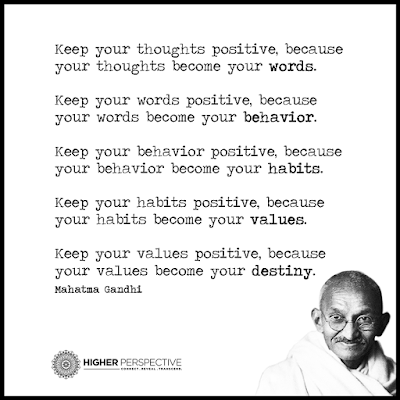Mahatma Gautum Baiji did her satsang this Sunday almost entirely in English. Here it is, paraphrased:
Yoga actually comes from yuj, to unite with our self.
So when we do that - when we practice yoga and unite with our selves - we tend to naturally experience questions like "Why are we living?"
Why are we living?
To achieve something.
Obtaining material things? No, we know there is more. So what do we really want to achieve?
Peace.
When we're missing peace, the mind is upset. Without peace, everything else - especially the material things - are useless.
And nobody is selling peace...
Cell phones can do many amazing things. They can make calls, give directions, bring you news, etc. But they won't do any of those things if you don't charge it.
But when you get home at night and are ready to charge it, do you merely set it on top of the charger without plugging it in? No - you must connect it.
In the same way, we cannot find peace outside of ourselves. We must connect to it.
If I say, "God is in my heart..." Is my heart in a temple? Is my heart in a church?
God is in my heart, which is inside of me. (The word yoga itself refers to linking with God.)
So we might then ask ourselves, what is God?
God is energy. Think of electricity. It's not a bulb, but it can light up a room. It's not the air conditioner, but it can cool the room, or heat the room through a heating unit.
Once we realize God is within our heart all the time, we will understand that we need nothing else. This is peace.
But we need the eye to see it.
If you have a mound of sugar and sand mixed together, an ant will always know where the sugar is - such is his ability to focus.
A magnifying glass can burn paper because of its ability to focus on it.
Once we realize that God is within our heart all the time, we will need nothing else.
Without it, we are wasting our life...
The ability to be still and go inside to experience this - to meditate - is the greatest gift God has given us.
In the Bagavad-Gita, it is the technique that Krishna gave to Arjuna.
And yet if someone says "Let's go to a movie," we're ready, but if someone says "Let's meditate for fifteen minutes," we're suddenly too tired. Or busy.
We can have a healthy body, but a sick mind from no meditation and too many worldly distractions helps no one.
If you have a boat in the water, you are fine. But if too much water gets in the boat, you will sink. The same with too much of the world...
With meditation, we can get whatever we want. And what do we want most?
Peace.



















































